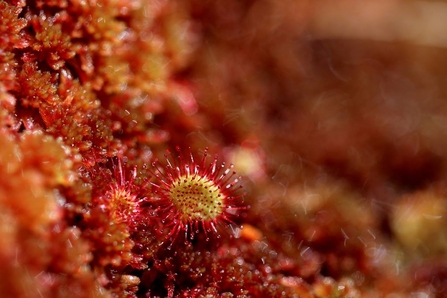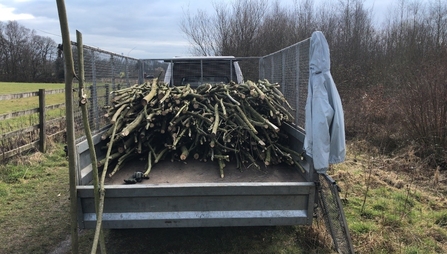On the 4th of March 2021, staff and volunteers from the RSPB based at Dove Stone (near Oldham) visited the Mersey Forest’s Griffin Wood to harvest willow to trial an innovative new technique in peatland restoration. This valuable resource added to the 800+ coppiced willow poles kindly donated by RSPB Blacktoft Sands (near Doncaster) to provide a natural solution to peat erosion, helping to improve water quality, reduce carbon emissions and allow nature to thrive.
Peatlands are fantastic. They provide a home for rare and unique wildlife as well as acting like a giant sponge for carbon. Peat soils are formed in waterlogged conditions over thousands of years to create carbon rich soils comprised of partially decomposed organic matter. Amazingly, peatlands can contain up to 10 times the amount of carbon stored in an equivalent area of rainforest! The UK is home to nearly three million hectares of peatland, our greatest land-based carbon store. The majority of peatlands in the UK cover extensive areas known as blanket bog, a globally rare habitat that must be protected and cared for. This unique habitat provides nesting sites for wading birds such as Dunlin and Golden Plover. They are also home to some fascinating vegetation, such as the carnivorous sundew (which gobbles insects!) and remarkable sphagnum mosses that can hold up to 20 times their weight in water.


